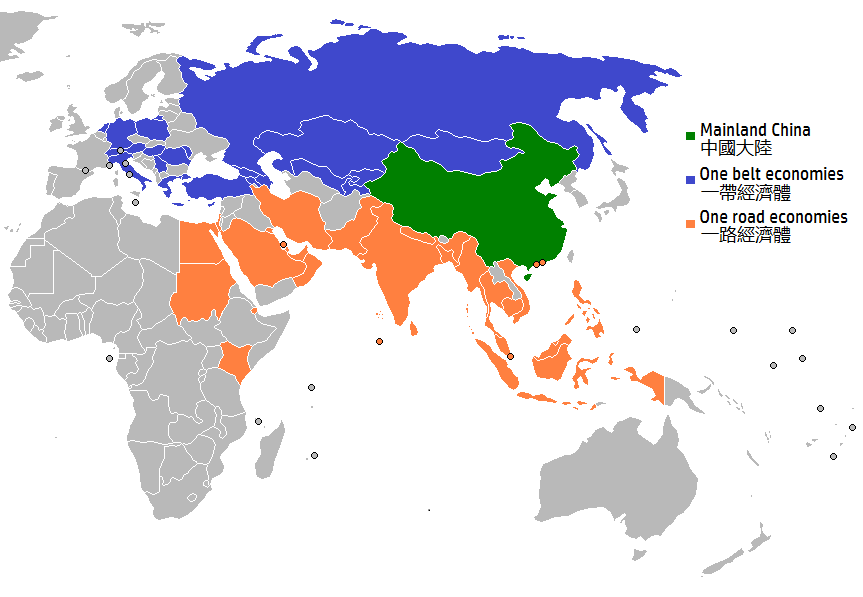
Ben Reynolds, Writer and Foreign Policy Analyst in New York
May 10, 2019
During the Second Belt and Road Initiative (BRI) Summit last month, the Chinese government notably shifted its focus and is now downplaying fears of debt encumbrance, corruption, and environmental degradation. But this should not distract us from the key fact that participation in the BRI continues to grow, including from traditional U.S. allies in Asia and Europe.

Christopher A. McNally, Professor of Political Economy, Chaminade University
Dec 08, 2017
The China model could lead to more varied views on what works and doesn’t in economic development.

Matt Ferchen, Nonresident Scholar, Carnegie-Tsinghua Center for Global Policy
Dec 08, 2017
Recent studies have inspired headlines such as “China and U.S. ‘neck and neck’ in foreign assistance spending”. Contrasted against the Trump administration’s apparent contempt for longstanding American support for global development promotion, such headlines seem yet further evidence of China’s emergence as a leader of global economic governance and influence.

Matt Ferchen, Nonresident Scholar, Carnegie-Tsinghua Center for Global Policy
Oct 04, 2017
Just as President Donald Trump threatens to gut the State Department and Agency for International Development (USAID) budgets for development and foreign aid, China has been stepping up its own international development promotion efforts.

Matt Ferchen, Nonresident Scholar, Carnegie-Tsinghua Center for Global Policy
Aug 29, 2017
Book Review: Daniel W. Drezner The Ideas Industry: How Pessimists, Partisans and Plutocrats are Transforming the Marketplace of Ideas. Oxford University Press, 2017.
Sajjad Ashraf, Former Adjunct Professor, National University of Singapore
Dec 14, 2016
President-elect Donald Trump’s announcement that the United States will quit the Trans-Pacific Partnership kills the stillborn deal. For the countries of Southeast Asia who joined this U.S. led pact, it is a moment of reflection over their policy choices, making them seek accommodation with a more certain China rather than a wavering U.S.

Beth Smits, PhD candidate, Paul H. Nitze School of Advanced International Studies (SAIS), Johns Hopkins University
Dec 13, 2016
As the president-elect makes bold statements and takes symbolic actions relevant to US-Sino relations, perhaps a bit of folklore suggests how to think about wise policy actions.
Yu Xiang, Senior Fellow, China Construction Bank Research Institute
Aug 15, 2016
The economic relationship should have evolved with China and U.S. economies’ “New Normal”, but a variety of fears are in the way. The U.S. would like to decrease its reliance on consumption as the engine of growth, relying more on domestic investment and exports. China seeks more consumer spending, and less reliance on domestic investment and exports. Those goals are highly complementary and mutually reinforcing, creating opportunities that should not be missed.
Jun 27, 2016
China has ample fiscal space to cope with any market turbulence triggered by Britain’s decision to leave the European Union but should limit intervention to alter the yuan’s value, said the head of the Asian Infrastructure Investment Bank.
Stewart Taggart, Founder & Principal, Grenatec
Jun 14, 2016
China’s six-month old investment bank, the AIIB, has been at pains to portray itself as a new multilateral economic institution governed by written rules and not merely a foreign economic policy puppet of China. However, problems may arise as the South China Sea tribunal ruling nears the official AIIB coming-out party.
Back to Top

- China-US Focus builds trust and understanding between the U.S. and China through open dialogue among thought leaders.
- Our Offerings
- Topics
- Videos
- Podcasts
- Columnists
- Research Reports
- Focus Digest
- Stay Connected
-
Thanks for signing up!
- Get the latest stories from China-US Focus weekly.